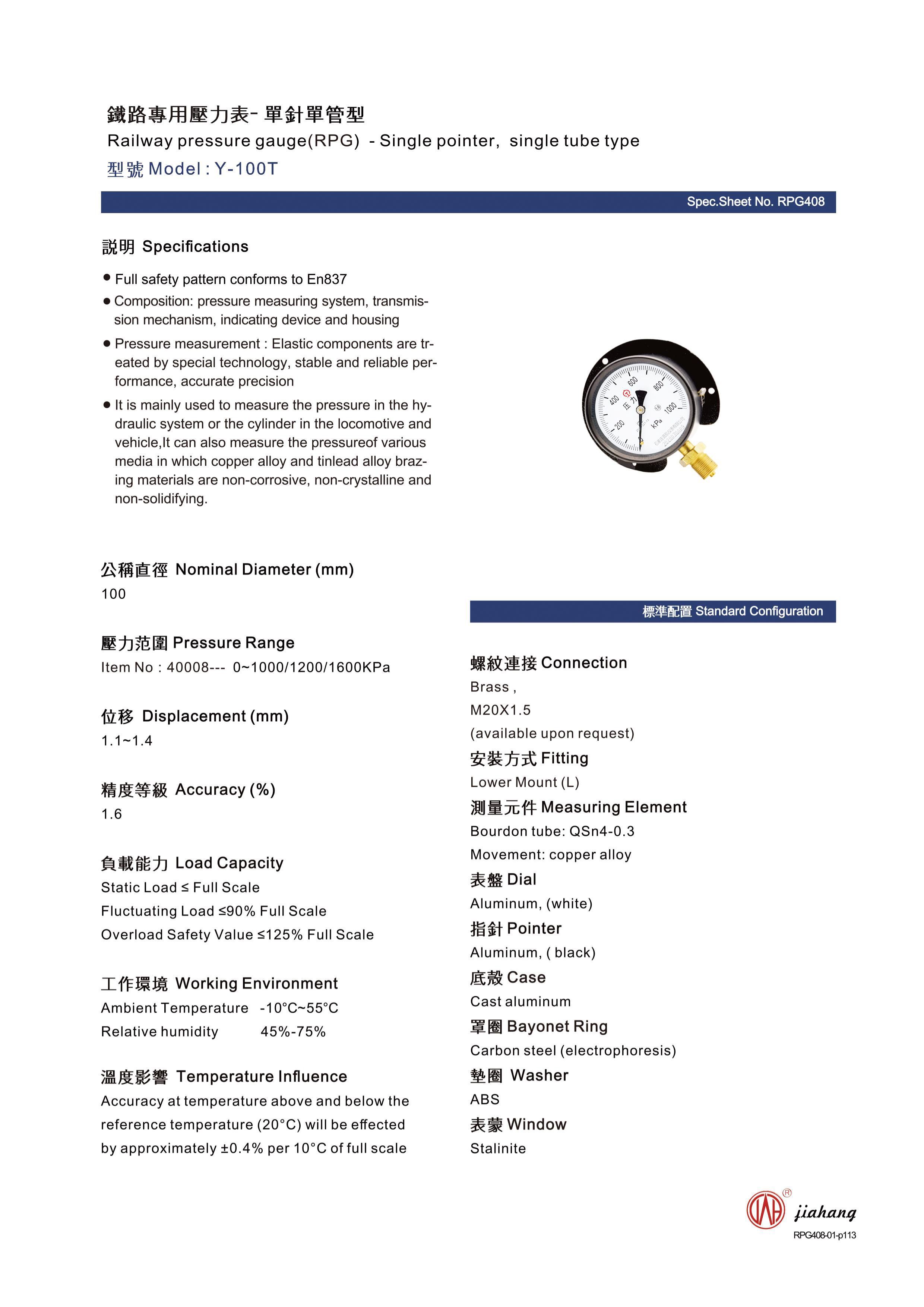
Nov . 10, 2024 22:06 Back to list
High-Performance Pressure Gauges for Accurate Measurement in Precision Instruments
Understanding Precision Instruments A Comprehensive Overview of Pressure Gauges
Pressure gauges are essential tools in a plethora of industrial and scientific applications, designed to measure the pressure of gases or liquids accurately. Among the various types of measurement instruments, precision instruments stand out for their ability to deliver reliable and accurate data, which is crucial for the safety and efficiency of operational processes. This article delves into the significance of pressure gauges, the technology behind them, types of gauges available, and the importance of choosing high-quality precision instruments.
The Importance of Pressure Gauges
Pressure gauges are fundamental in numerous sectors, including oil and gas, pharmaceuticals, manufacturing, and HVAC systems. Their primary function is to provide real-time data on the pressure levels within systems, helping operators detect anomalies, maintain safety standards, and enhance process efficiency. For example, in a gas pipeline, maintaining the correct pressure is vital to prevent leaks and potential explosions. By employing precision pressure gauges, industries can ensure the safe and efficient operation of their systems.
How Pressure Gauges Work
At their core, pressure gauges typically operate based on one of several principles of mechanics, including Bourdon tube, diaphragm, piezoresistive sensing, or capacitive sensing.
1. Bourdon Tube Gauges These devices consist of a coiled tube that straightens when pressure is applied, moving a needle against a dial to indicate the current pressure level. They are widely used due to their robustness and ability to function accurately over a range of pressures.
2. Diaphragm Gauges These utilize a flexible diaphragm that deflects under pressure changes. The degree of deflection is converted into an electrical signal, providing a digital readout of the pressure, which is convenient for remote monitoring.
3. Piezoresistive Sensors Common in digital gauges, these sensors measure the change in electrical resistance caused by pressure-induced deformation. They offer high accuracy and are often used in applications where precision is paramount.
precision instruments pressure gauges

Types of Pressure Gauges
The market offers an array of pressure gauges tailored to specific needs, categorized primarily into analog and digital gauges
- Analog Pressure Gauges These traditional gauges provide a linear measurement on a dial and are valued for their simplicity and reliability. They are commonly found in various industrial environments.
- Digital Pressure Gauges Equipped with modern sensors and display screens, digital gauges provide precise readings, often with additional features such as data logging, alarm settings, and connectivity options for real-time monitoring.
Furthermore, pressure gauges can be classified based on their pressure range, as absolute gauges, gauge pressure gauges, or vacuum gauges. Absolute gauges measure pressure relative to a perfect vacuum, while gauge pressure gauges measure pressure relative to atmospheric pressure, and vacuum gauges are specifically designed to measure pressures below atmospheric levels.
Choosing Precision Instruments
When selecting pressure gauges, several factors come into play, including the required accuracy, the pressure range, environmental conditions, and the type of medium being measured. High-quality precision instruments ensure minimal error and reliable performance across various conditions. Additionally, it is important to consider the calibration and maintenance needs of the gauges to guarantee continued accuracy over time.
Investing in precision pressure gauges can lead to improved efficiency, greater safety, and reduced operational costs in the long run. Many manufacturers offer calibration services to ensure that the instruments function accurately and consistently.
Conclusion
In conclusion, pressure gauges are integral to modern industrial processes, providing critical data that ensures operational reliability and safety. With advancements in technology, precision instruments like digital and analog pressure gauges have become increasingly sophisticated, enabling better monitoring and management of pressure levels across various applications. Choosing the right gauge—one that is durable, accurate, and suited to the specific environment—can make a significant difference in process outcomes, underscoring the importance of precision in measurement instruments. By prioritizing quality and reliability, industries can better safeguard their operations and contribute to a more efficient future.
-
High-Precision 5 Valve Manifold Differential Pressure Gauge Suppliers
NewsApr.29,2025
-
High-Precision Diaphragm Vacuum Pressure Gauges Manufacturers & Quotes
NewsApr.29,2025
-
Omega Differential Pressure Gauges High Accuracy & Durability
NewsApr.28,2025
-
Low Pressure Differential Pressure Gauges Precision Solutions & Quotes
NewsApr.28,2025
-
Digital Diaphragm Pressure Gaauge Precision Measurement & OEM Quotes
NewsApr.28,2025
-
Differential Pressure Gauge China Price High-Accuracy & Best Quotes
NewsApr.28,2025
